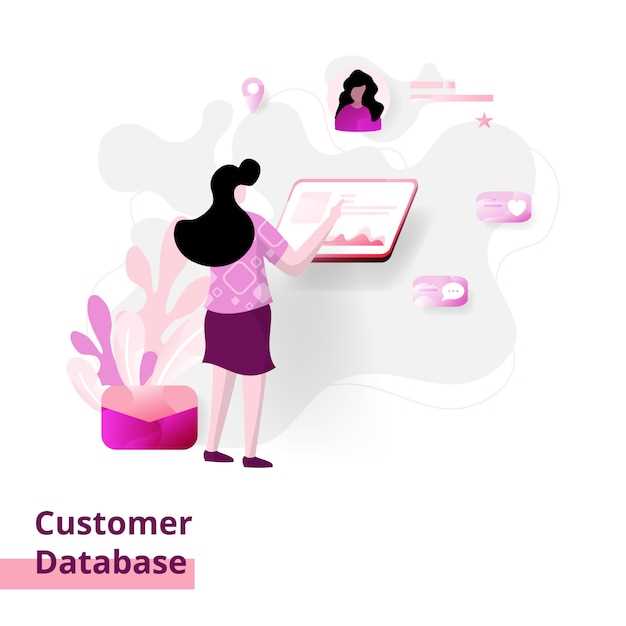
In today’s competitive market, it is crucial for businesses to focus on maintaining strong relationships with their customer base. By implementing strategies that encourage repeat business and foster long-term connections, companies can increase customer engagement and drive revenue growth.
An essential aspect of building client allegiance lies in the ability to understand and meet the unique needs and preferences of each individual. By tailoring marketing campaigns and offers to specific customer segments, organizations can create personalized experiences that resonate with their target audience.
Furthermore, establishing clear communication channels and providing exceptional customer service are key components in building trust and loyalty among clients. By actively listening to feedback and addressing concerns in a timely manner, businesses can demonstrate their commitment to customer satisfaction and retention.
Importance of Ensuring Client Commitment Plans
Creating and maintaining a robust customer base is crucial for the success of any business. The long-term profitability and sustainability of a company heavily rely on its ability to retain a loyal clientele. Implementing effective strategies to retain customers can significantly impact a company’s bottom line and reputation in the market.
| Enhanced Profitability | By focusing on retaining existing customers, businesses can increase their revenue by reducing customer churn and increasing customer lifetime value. This leads to higher profitability and improved financial performance. |
| Brand Reputation | Happy and loyal customers are more likely to recommend a brand to others, thus helping in building a positive brand image and reputation in the market. This can attract new customers and strengthen the company’s position in the industry. |
| Cost-Effectiveness | Acquiring new customers is more expensive than retaining existing ones. By investing in customer retention strategies, businesses can save on marketing and promotional costs while increasing their overall return on investment. |
Building Trust and Relationship with Customers

In order to cultivate strong connections and foster loyalty among your clientele, establishing a foundation of trust and building genuine relationships with them is paramount. By developing a sense of reliability and creating meaningful interactions, you can enhance customer satisfaction and encourage repeat business.
Nurturing Trust
Trust is the cornerstone of any successful relationship, whether personal or professional. Transparency, consistency, and integrity are key components in building trust with your customers. By delivering on promises, being responsive to their needs, and prioritizing open communication, you can instill confidence in your brand and solidify their loyalty.
Furthermore, demonstrating empathy, understanding, and respect towards your customers can go a long way in building rapport and establishing lasting connections. By showing genuine care and concern for their well-being, you can create a sense of trust and loyalty that transcends mere transactions.
Personalize Your Customer Experience
Enhance your relationship with clients by tailoring their interactions with your brand to meet their individual needs and preferences. By customizing the customer experience, you can create a more engaging and meaningful connection with your clientele.
- Utilize customer data to personalize communication and offer targeted promotions.
- Segment your customer base to deliver more relevant products or services to different groups.
- Implement personalized recommendations based on past interactions and purchasing behavior.
By focusing on personalized customer experiences, you can foster loyalty and satisfaction, ultimately leading to increased retention rates and profitability for your business. Remember, each customer is unique, and catering to their specific needs can set you apart from competitors and build long-lasting relationships.
Tailoring Products and Services to Individuals
Personalizing offerings to suit the unique needs and preferences of each person is key in building lasting relationships and fostering repeat business. By customizing products and services to cater to individual tastes and requirements, businesses can create a sense of exclusivity and make customers feel valued.
Understanding the specific needs of customers through data analysis and customer feedback is essential in tailoring offerings effectively. By analyzing buying patterns, browsing history, and past interactions, businesses can gain insights into what each individual values most and adjust their offerings accordingly.
Moreover, by segmenting the customer base into smaller groups based on preferences, demographics, or buying behavior, businesses can create targeted marketing campaigns and promotions that appeal directly to each segment. This personalized approach can significantly increase customer satisfaction and loyalty.
Ultimately, by taking the time to tailor products and services to individuals, businesses can set themselves apart from competitors and establish strong connections with their customer base. This focus on customization and personalization can lead to long-term customer relationships and a loyal following.
Implementing Loyalty Programs for Customer Engagement

Creating and executing programs that reward patrons for their continued business is essential in fostering long-term relationships with clients. In this section, we delve into the various methods and strategies that can be utilized to implement loyalty initiatives aimed at engaging customers and building lasting connections.
1. Personalized Rewards
One effective approach to engage customers is by offering tailor-made rewards that cater to their individual preferences and buying habits. By personalizing incentives, businesses can demonstrate their appreciation for each customer and increase loyalty through meaningful gestures.
2. Gamification Techniques
Engage customers by incorporating gamification elements into loyalty programs, such as earning points, leveling up, and unlocking exclusive rewards. Gamified experiences can make the engagement process more interactive, fun, and rewarding, thus encouraging customers to remain invested in the brand.